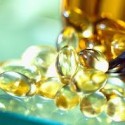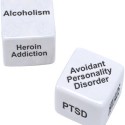Rescuing The Alcoholic/Addict: 14 Reasons Why It’s Hard To Break The Cycle
I was terribly confused about the meaning of ‘compassion’ when I came to Al-Anon. I thought it meant making excuses for the alcoholic or covering bad checks. Al-Anon helped me to find another word for this behavior: ‘enabling.’ I learned that when I cleaned up the consequences of alcoholic behavior, I enabled the alcoholic to continue drinking comfortably and acting out without having to pay the price. A more compassionate way to respond to those I love might be to allow them to face the consequences of their actions, even when it will cause them pain. ( This is quoted from the Al-Anon book Courage to Change and truer words have never been spoken. )
But what do they mean? What does the “rescuer” or “enabler” look like and why are these labels so common to so many well meaning family members and friends that love the alcoholic/addict?
As caring, compassionate people we naturally and instinctively want to protect and help our loved ones. There is a universal drive of both animals and human beings that beckon us to stand between what we see as a potentially harmful situation and the ones we love — especially if those loved ones are weak or sick.
But, there is a fine line between being part of the solution or being part of the problem. The challenge comes in breaking the cycle or habit of being part of the problem, and becoming part of the solution.
So, why is it so hard to do, when we know that rescuing our loved one (the alcoholic/addict) is truly detrimental to not only their well being, but to ours as well?
Rescuing makes us feel wanted and needed. It is a momentary adrenaline rush when for a brief instant we are the center of someone else’s world. They thank us, are grateful and chances are someone else has said no to them, so you are their Hero du jour…and that is a heck of a warm and fuzzy feeling. The addiction (yes, I said addiction) of enabling and rescuing others (a family member or the mailman) over and over again is usually found holed up somewhere in the psyche of people that might not have much going on in their own personal life, or what they have is not as fulfilling as it should be.
People that are bored or insecure are ripe for wearing the enabling and rescuing crown. If you’re bored, it’s easy to shelve that boredom by suggesting, foisting your opinion or even trying hard to take over another’s life if you don’t feel that they are doing a good enough job on their own, or approve of their life style.
People that are insecure with themselves or uncomfortable in their own skin may be seeking the attention from others to satisfy these needs. A wonderful way to fill that void is to enable and rescue someone that you think is screaming out for a life preserver. Whether they are or not — you think you know best. By donning your rescue cape, your hope is that not only will you be praised for your efforts, insights and sensitivity, but you will take a well deserved bow because of your 6th sense.
Enabling and rescuing someone who is an alcoholic/addict can range from lying and covering up the infractions from their intoxication to throwing what you think is a life line. And yet that well intended helping hand could result in a dangerous outcome. You probably have no idea what their patterns or habits are regarding their addiction and your enabling could unintentionally continue to promote out of control behavior.
Here is a list of 14 reasons why we continue to rescue and enable even though we know we should turn and walk away:
- We hope against all hope that tomorrow will be different.
- Ego. We are the ones that “saved the day.”
- Ego again. We want to be liked.
- What if they die and we could have stopped it?
- They are sick and not responsible for their actions.
- Don’t want to hurt their feelings if we say “no.”
- Afraid of their anger, punishing or retribution.
- Afraid they may do something “bad” (act out) — blaming us for their actions. The “I’ll show you or you’ll be sorry” attitude.
- We will be perceived poorly for not caring about our family members or friends.
- Something new has entered the equation, so we try one more time.
- Too weary or too lazy to implement change.
- This “dance” has been part of your life for so long, you don’t know what purpose you would have without it.
- The need to protect other family members from embarrassment, scorn or ridicule.
- They need to protect yourself from embarrassment, scorn or ridicule.
We all fall into some of these categories during different times of our life whether it revolves around the alcoholic/addict or not; and hopefully fall out depending on the situation. It takes strength, confidence and fortitude in not being tempted to enable and/or rescue, but it’s worth the effort, for it will produce a healthier life style for not only the alcoholic/addict, but you as well.
source: Huffington Post


